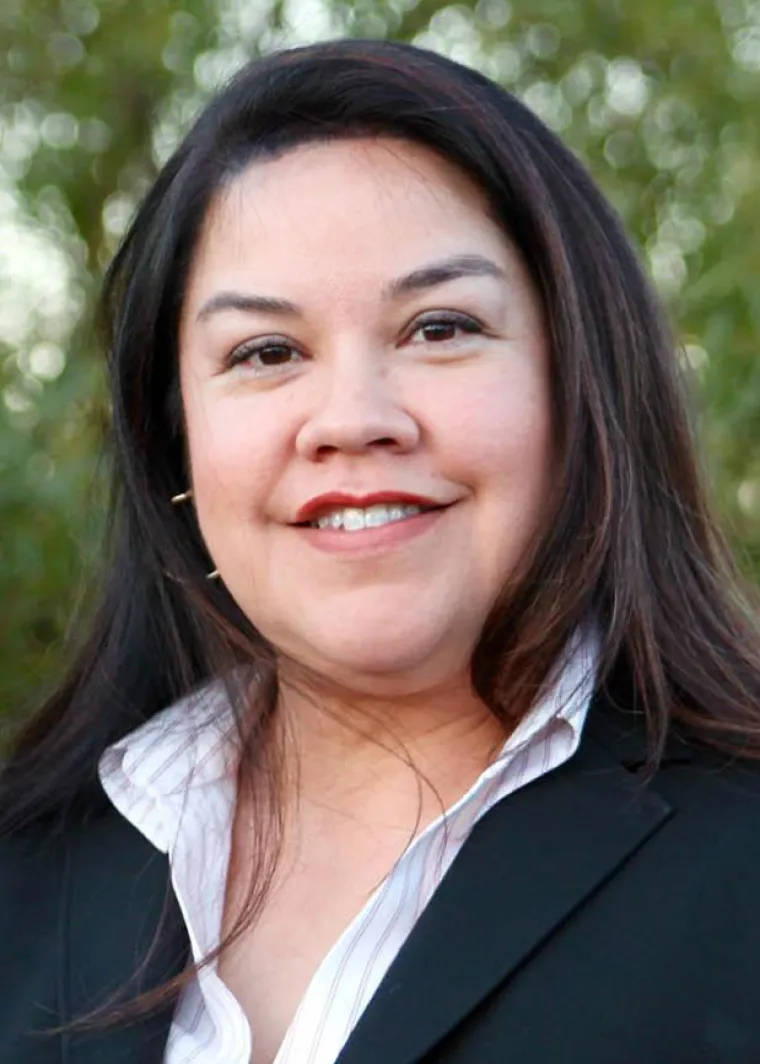Christina C. Bell Andrews, JD, MPH, MBA, MA
Christina C. Bell Andrews, JD, MPH, MBA, MA, is Hia-Ced O'odham (“Sand People”) and Yoeme. She is a member of the Tohono O’odham Nation (“Desert People”). She serves as an assistant professor in the Department of Family and Community Medicine and as executive director of the Wassaja Carlos Montezuma Center for Native American Health at the University of Arizona College of Medicine – Tucson. Andrews is a leading voice in Indigenous law, health policy and tribal governance, with over 26 years of professional and leadership experience across government, education and health systems at the tribal, state, federal and international levels.
Andrews earned her Juris Doctor degree and certificate in federal Indian law from the Sandra Day O’Connor College of Law at Arizona State University. She also holds a bachelor’s degree in Spanish and Portuguese, a master’s in English and a Master of Public Health in policy and management from the University of Arizona, as well as a Master of Business Administration in international business from the University of Phoenix. She previously served as a Udall intern in the office of former congressman Raúl Grijalva, where she received congressional recognition and created a bipartisan bill on Native American suicide prevention.
Before joining the Wassaja Center in 2023, Andrews served on the university’s Community Action Council Committee for the American Indian Research Center for Health, ensuring that tribal and urban American Indian/Alaska Native communities had meaningful input in program and policy development. She also worked as a site manager for the Child Welfare and Juvenile Law Tribal–State Justice Partnerships program at the National Council of Juvenile and Family Court Judges, collaborating with tribal and state courts on issues including child welfare, juvenile justice, and Indian Child Welfare Act implementation. Her earlier roles included service as a judicial law lerk assisting in the creation of Arizona’s first Indian Child Welfare Act court. She continues to work on cases and policy advocacy on tribal and federal initiatives.
In August 2025, the U of A’s College of Architecture, Planning and Landscape Architecture’s Drachman Institute honored Andrews for her significant contributions to the academic year and overall positive impact on students. She was one of 28 community leaders, professionals and partners to receive awards at the inaugural Community Outreach and Impact Celebration.
At the Wassaja Center, Andrews leads an Indigenous-led framework advancing holistic health, community wellness and self-determination through culturally grounded research and practice. She is the principal investigator for multiple national grants, including the Kellogg Foundation initiative to expand and sustain a Native American health workforce and the MacArthur Foundation project aimed at reducing the disproportionate incarceration of Native Americans and strengthening families. She is also a co-principal investigator on a project increasing Native American representation in nursing.
Andrews serves on the National Institutes of Health “All of Us” Research Program advisory panel, the University of Arizona Cancer Center’s Community Outreach & Engagement Board, the Pima County Board of Supervisors’ Opioid Settlement Committee, the Arizona State & Tribal ICWA Advisory Committee and the Uniform Law Commission. She continues to mentor emerging scholars as an adjunct faculty member at the Mitchell Hamline School of Law and Tohono O’odham Community College.
Andrews, a respected tribal leader for nearly two decades, remains committed to advancing tribal sovereignty and strengthening Indigenous representation in research and health professions. Her approach — rooted in cultural humility, reciprocity and advocacy — embodies her belief that “if change is going to happen with our Indigenous families, the tribes have to be the ones driving the bus.”
Degrees
- JD: Sandra Day O’Connor College of Law, Arizona State University
- MPH: University of Arizona
- MBA: University of Phoenix
- MA: University of Arizona


